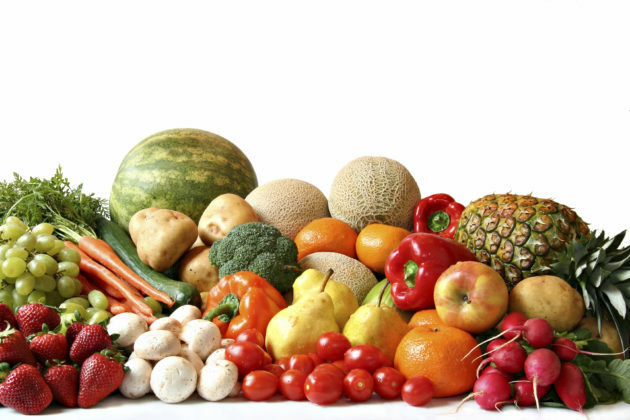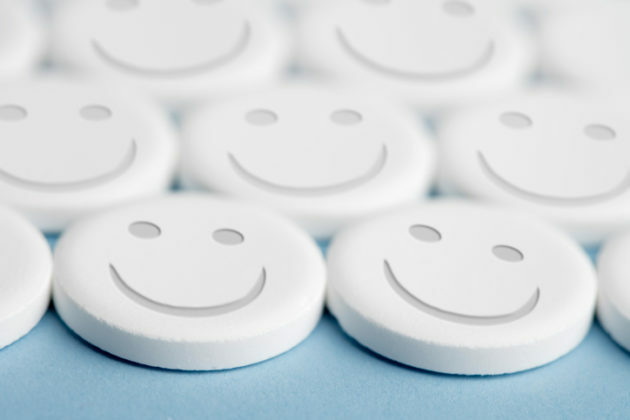The main causes of constipation in adult patients
Constipation is a disease of the digestive system, in which a person has a hard stool and a difficult bowel movement. In most cases, the causes of constipation are due to the fact that too much water is absorbed from the food in the large intestine.

The slower the food moves through the digestive tract, the more water it absorbs. Because of this, the stool becomes dry and hard, which leads to problems with defecation. Determining the correct cause of constipation and slowing of peristalsis is important for proper treatment of this problem.
Reasons for constipation
To understand why there is constipation and bloating, you need to learn a little about how the intestines work. The large intestine absorbs water from the human food. As the food moves through the intestines, the stool is gradually formed from the undigested substances. It is stored in the rectum until defecation.
Muscles of the intestine help push the stool masses towards the rectum. If too much water is absorbed in the digestive tract or if the intestinal muscles slowly push food through the intestines, the stool becomes hard and dry, causing constipation.
Lack of fiber in the diet
It is well known that people whose diet contains a sufficient amount of fiber are much less likely to suffer from constipation. Typically, foods containing little fiber are rich in fats, which can worsen intestinal motility. These products include, for example, cheese, meat and eggs. Fiber is not a digestible part of food.
There are two types of dietary fiber:
- Soluble fiber. This species absorbs water and forms a gel-like substance within the digestive system. Due to this, it softens the stool and facilitates the emptying of the intestine.
- Insoluble fiber. It increases the amount of feces that helps prevent constipation.
The lack of soluble and insoluble dietary fiber is one of the main causes of frequent and prolonged constipation. Simply put, fiber helps to empty the intestines and prevents constipation, but the effectiveness of its use to prevent this problem is much higher than for treatment.
It should be noted that with a sharp increase in the amount of fiber in the diet, the intestine may begin to swell due to increased gas formation.

Inadequate physical activity
A sedentary lifestyle is another common cause of the development of constipation symptoms, especially in adults and the elderly. Physical activity stimulates the intestinal peristalsis, so its deficiency can slow down and weaken the contraction of the muscular apparatus of the digestive tract.
It is known that people who are forced to lie in bed for several days or weeks, the risk of developing constipation is significantly increased. Scientists do not know exactly why patients have constipation in such situations. Some of them believe that physical activity maintains an intensive metabolism, due to which all processes in the body are accelerated.
Aging
As you age, the metabolism in the human body slows down, which leads to a weakening of peristalsis and constipation. In addition, older people tend to lead a less active lifestyle.
Inadequate water use
Doctors claim that regular intake of sufficient water reduces the risk of constipation. If a patient suffers from frequent constipation, serious consideration should be given to increasing fluid intake.
But many drinks contain caffeine, which causes dehydration and can only exacerbate problems with bowel movement. Alcohol can also cause dehydration, so a person with strong constipation should avoid using it.
Chocolate
There is scientific evidence that chocolate can be a cause of constipation in some patients. If a person thinks that his problems are related to the use of chocolate, then he should stop using this product.
Dairy products
A diet consisting of a large number of cheeses and other products that contain little fiber can slow the digestion process. These foods should be consumed with vegetables containing a large number of plant fibers.
Ignoring the urge to defecate
Sometimes it is difficult for people to empty their bowels in uncomfortable conditions or away from home. Others are faced with the fact that their busy lifestyle does not allow them to visit the toilet when there is a urge to defecate.
Scientific studies have shown that people who suppress the desire to go to large, have an increased risk of constipation. Water is absorbed from the stool, it becomes dry, which causes defecation. Therefore, patients with a tendency to constipation is best to listen to their body. If a person feels the need to visit the toilet, he needs to do it as soon as possible.
Calcium preparations
The use of calcium preparations can cause a slowing of the peristalsis of the digestive tract. Because of this, the stool is too long in the intestines, which contributes to the absorption of a large amount of water from it. The chair becomes too dry, its exit from the intestine is complicated.
Iron preparations
The intake of too many iron preparations can make the stool hard, since its high concentration slows the movement of the large intestine.
Antidepressants
Drugs used to treat depression can cause constipation. This is due to their anticholinergic properties. These drugs block the binding of the neurotransmitter acetylcholine to its receptors.

Acetylcholine takes part in contractions of the intestinal muscles, due to which food moves along the digestive tract. When blocking the effects of acetylcholine, the stool is in the intestine for too long, which makes it dry and hard.
Narcotic pain medications
Approximately half of people taking narcotic painkillers suffer from constipation.
These drugs act on the intestines in various ways:
- Opioids impair propulsive peristalsis, which promotes food along the digestive tract towards the rectum. Its slowdown leads to the absorption of a large amount of water and stool.
- Opioids also prevent the secretion of fluid into the lumen of the digestive tract.
The combination of slowing peristalsis and reducing the release of fluid into the lumen of the intestine - an explanation of why there are strong constipation in people taking narcotic painkillers.
Non-steroidal anti-inflammatory drugs
Some scientific studies have demonstrated that an increased risk of constipation can be caused by a prolonged intake of Aspirin and Ibuprofen.
Multivitamins
The vitamins themselves do not cause constipation. However, multivitamins can contain iron and calcium, which sometimes complicate the emptying of the intestine.
Antacids
These are medications that are often used to treat heartburn. However, some of them can cause constipation, especially those that contain calcium or aluminum.
Hypotensive preparations
Constipation may be a side effect of some drugs to lower blood pressure, including calcium channel blockers and diuretics.
Diuretics increase the excretion of water from the body, which causes the stool to become dry and hard. Calcium channel blockers reduce myoelectric activity of the intestine, which leads to a slowing of peristalsis and constipation.
Antihistamines
The drugs used to treat allergies can also cause constipation.
Anticancer drugs
Some chemotherapeutic drugs affect the nerve plexus of the intestines, slowing its peristalsis and causing constipation.
Medications for nausea
Side effects of nausea and vomiting( for example, Ondasetron) often become constipation.
Excessive use of laxatives
Some laxatives work by stimulating intestinal peristalsis. With long-term use of these stimulant laxatives, dependence may arise, the digestive tract simply does not function normally without them. Therefore, if certain laxatives are withdrawn, patients may develop constipation.
Pregnancy
Approximately 40% of women during pregnancy suffer from constipation, especially in the early stages. Deficiency disorders develop due to the fact that the female body during the gestation of the child produces a large amount of the hormone progesterone, which acts as a muscle relaxant. Progesterone weakens peristalsis, causing constipation. In addition, the enlarged uterus can press on the intestines, slowing the passage of food through it.

Sometimes in women, constipation appears before menstruation, which is also caused by hormonal changes.
Childbirth
After birth, problems with defecation occur in many women. This may be due to flaccid abdominal muscles, the use of anesthetics or anesthetics during labor.
Immediately after the birth of the child, tenderness of the perineum can be observed, and the fear of its strengthening during defecation can be an important factor in the development of constipation.
Hypothyroidism
This is a disease in which the thyroid gland produces few of its hormones. Thyroid hormones control the metabolism in the body. With their lack of metabolism slows down, which can lead to poor digestion and peristalsis.
Inflammatory bowel disease
Includes two chronic diseases - Crohn's disease and ulcerative colitis. Both pathologies can cause abdominal cramps, weight loss, the presence of blood in the stool, swollen bowel and other symptoms. Although chronic diarrhea is the most common symptom, some patients may experience constipation.
In ulcerative colitis, constipation can be a sign of inflammation in the rectum, and in Crohn's disease - a sign of obstruction of the small intestine.
Diabetes mellitus
This disease can cause nerve damage, which slows the intestinal motility and causes constipation.
Neurological diseases
Constipation may be caused by diseases that disrupt intestinal innervation.
These belong to:
- Multiple sclerosis. An autoimmune disease affecting the brain and spinal cord, in which the own immune system destroys the protective membrane on nerve fibers. Because of this, the transmission of nerve impulses throughout the body, including the digestive tract, is disrupted.
- Parkinson's disease. Progressive lesion of the central nervous system, in which the patient is disturbed by movement coordination. With Parkinson's disease, constipation arises from the malfunctioning of the autonomic nervous system, which is responsible for the intestinal peristalsis. In addition, the development of constipation is facilitated by drugs used to treat this disease.
- Stroke. Brain injury due to ischemia or hemorrhage. Inadequate fluid intake, lying position, taking medications for treatment are the main reasons why constipation occurs in strokes.
- Damage to the spinal cord. May be a consequence of spinal injuries, oncological diseases of the spinal cord, herniation of the intervertebral disc. In this case, the innervation of the intestine is broken, because of which its peristalsis slows down, and constipation occurs.
Systemic diseases
In systemic diseases, disturbances occur in the connective tissue that is found in all human organs, including the digestive tract. This leads to a deterioration in the functioning of the intestine and the occurrence of constipation.
Systemic diseases include systemic lupus erythematosus, scleroderma, amyloidosis.

Oncological diseases
Tumors localized in the abdominal cavity may compress the intestine or narrow its lumen. Because of this, the passage of food through the digestive tract becomes difficult, and constipation develops.
Reasons for constipation in men
The reasons for stool retention in men do not differ much from those of women, except for pregnancy and childbirth. It is believed that constipation in women are more common than in the stronger sex.
If constipation alternates with diarrhea
Although constipation and diarrhea are considered to be completely opposite symptoms of digestive tract diseases, in some situations they can co-exist in one person, replacing each other.
If the patient has a constant alternation of constipation, then diarrhea, if these symptoms accompany vomiting, flatulence, as well as bloating, and nausea, the cause is most often irritable bowel syndrome, the treatment of which is often not given much importance.
Causes of psychological constipation
The reason for constipation may be psychological problems. The brain and intestines are closely related, so if a person experiences stress, worries about something, suffers from anxiety or depression, this can have a negative effect on the digestive tract.
Why do prolonged constipation occur
Prolonged or chronic constipation can be caused by almost all the reasons listed above, including poor nutrition, insufficient physical activity, constant intake of certain drugs, neurological, systemic, oncological or endocrine diseases, pathology of the digestive tract.
If the patient still suffers from constipation after normalizing the diet and increasing physical activity, he needs to see a doctor who can evaluate other symptoms and identify the cause of bowel movements.
Constipation is a problem that has many causes, and the treatment is mandatory. Most often, they are caused by an improper diet and a sedentary lifestyle. But sometimes constipation is a sign of a more serious pathology, including oncological, neurological, endocrine and systemic diseases.
Author: Taras Nevelichuk, physician,
specially for Moizhivot.ru



